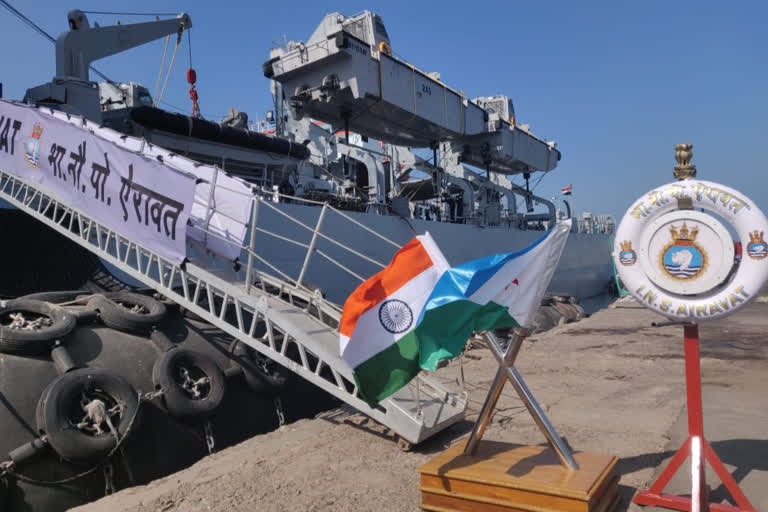New Delhi: With the Indian Ocean and its neighbourhood increasingly becoming a playground for global naval powers to build, consolidate and extend their respective areas of influence, the East African nation of Djibouti is an area of focal interest to the global powers including India and China.
On Wednesday, 50 tons of food—wheat, rice and sugar—ferried by the Indian Navy’s INS Airavat, was donated to the Djibouti authorities as part of the ongoing SAGAR (Security and Growth for All in the Region) plan—an effort of assistance to friendly foreign countries to overcome natural calamities and the COVID-19 pandemic.
The increased focus on Djibouti is guided by India’s geopolitical and military interests.
With about 10 lakh population, Djibouti may be a tiny country but situated on the Bab el-Mandeb Strait right on the ‘gateway’ to the Suez Canal, it sits pretty at a vantage location to keep an eye on the world’s busiest shipping lane.
That is why it is home to major military bases and naval stations belonging to US, France, Japan, Saudi Arabia and China while several other nations including the Germans and the Italians maintain some presence in the garb of fighting piracy.
India has in place key mutual logistical service pacts with the US, France and Japan that allows access to each other’s military facilities, logistical support, supplies and services all across the globe which includes refuelling, spares, fitments etc for military assets and platforms.
Read:Facing off China, east Ladakh is ‘picnic’ for many Indian soldiers
The India-US Logistics Exchange Memorandum of Agreement (LEMOA) was inked in 2016, a logistics support pact was signed between India and France in 2018, while the Acquisition and Cross-Servicing Agreement (ACSA) was signed with the Japanese in 2020.
In effect, Indian influence in Djibouti will allow it to freely operationalise its existing pacts with the US, France and Japan thereby greatly enabling Indian Navy’s reach. This will enable it to counter the Chinese who aim to establish itself as the paramount naval power in the Indian Ocean region.
Strategically, robust Indian influence in Djibouti would allow India to circumvent the ‘String of Pearls’ theory that stands for the Chinese network of military and commercial bases along its sea lines of communication that would also ‘encircle’ India.
